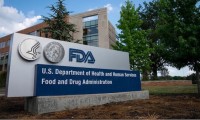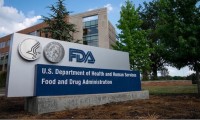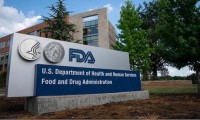-
Sanofi, AstraZeneca’s RSV antibody for infants easily clears FDA adcomm, likely setting up approval
- Source: drugdu
- 166
- June 10, 2023
-
FDA Indicates Potential Full Approval for Eisai & Biogen’s Leqembi Ahead of Adcomm
- Source: drugdu
- 104
- June 10, 2023
-
FDA advisers endorse antibody to protect against RSV in infants and some young toddlers
- Source: drugdu
- 120
- June 10, 2023
-
Philips faces new recall of Evo respirators, tagged Class I by FDA
- Source: drugdu
- 127
- June 9, 2023
-
FDA document outlines apparent agency support for full approval of Biogen, Eisai’s Leqembi
- Source: drugdu
- 181
- June 9, 2023
-
Abiomed heart pump recall labeled Class I by FDA, no deaths reported
- Source: drugdu
- 151
- June 7, 2023
-
FDA OKs Injectafer for Iron Deficiency Anemia in Heart Failure
- Source: drugdu
- 137
- June 7, 2023
-
Dana-Farber research supports FDA approval of new therapy for metastatic breast cancer
- Source: drugdu
- 152
- June 6, 2023
-
FDA allows temporary import of unapproved Chinese cancer drug to ease U.S. shortage
- Source: drugdu
- 133
- June 6, 2023
-
Coherus, Junshi eye FDA finish line after agency finally conducts plant inspection
- Source: drugdu
- 135
- June 5, 2023
your submission has already been received.
OK
Subscribe
Please enter a valid Email address!
Submit
The most relevant industry news & insight will be sent to you every two weeks.













